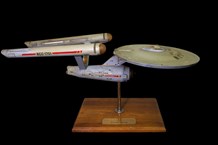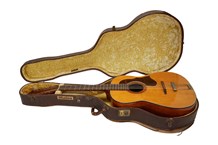THEY called him a super-ego who changed a nation’s tastes, while Stephen Bayley, who worked with Conran for ten years, fired himself into an absolute chicken brick of jealous rage, shrilling in his review of this very readable question-and-answer autobiography that the author, whose business turns over £117m a year, was a “self-serving tyrant with a narcissistic personality disorder”. Terence Orby Conran, commenting drily in the book in answer to a question about why Bayley resigned as director of the Design Museum, said: “The administration of the museum and its finances were not something he relished; what also became clear was that the brands about which he was so enthusiastic included himself.”
With questions contributed from 150 friends, family, colleagues, admirers and critics, including Mary Quant, Nicholas Serota and Barry Humphries, there is a lot of glorious bitching in this book, particularly when the questioner rattles Conran – the boss of Ikea, Ingvar Kamprad, for instance whom Conran slaps down with the comment: “As you believe that you can only do one thing properly, perhaps you’d like me to run Habitat again?” Can’t come soon enough, the place has become so lifeless. And this is really the crux of the book – Habitat, the store of the Sixties, living proof that good design at reasonable cost was available to all, from the drawing board, via manufacturing to the shop floor.
Considered by Conran to be his greatest achievement, his biggest disappointment is… “that I no longer run Habitat. I regret having to give it up as one of the prices I paid to extricate myself from Storehouse”. This was the lamentable Habitat-Mothercare merger with British Home Stores, with the aim of producing intelligently designed products for the mass market.
Several years of acrimony and frustration later… “that particular dream came to an end”, says Conran.
But then came another challenge, his restaurants. The chapters cover Conran’s early years, Habitat, the Conran Design Group, Storehouse to Butlers Wharf, Restaurants, Design and a probing warts and all self portrait. Now 70 and still full of the fizz he so admires in others, the restless and difficult Conran, described as a symbol of “human vanity and futility” by one rude questioner, fires up ever more projects. As Jonathan Meades, described by Conran in his bibliography as a “crude restaurant critic”, comments on Conran: “He, more than anyone, has changed British taste over the past 40 years. Think what people’s houses looked like in the ’50s.” One wonders just what has been Mr Bayley’s own life-enhancing contribution in this or any other arena?
Habitat of a lifetime…
Q&A: A Sort of Autobiography by Terence Conran, published by Harper Collins, ISBN 0007115296 £20 hb.




